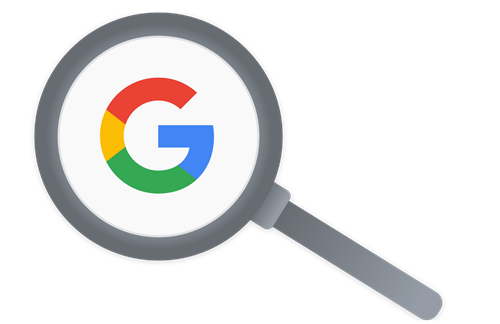Published: 29/03/2022
Find what you need on the Internet – discard what you don’t

Searching the internet can be frustrating. Enter a word or phrase into a search engine and up comes a stack of irrelevant information. You need the ability to refine your search to get exactly what you need. Here, we give some tips to help you pinpoint specific information online.
Try different search engines
About 625 million active websites are searched through to provide you with content. Perhaps you prefer one but don’t be restricted by habit. They all have different blind spots.
The most widely used search engines are Google®, Bing® and Yahoo®.
Google has the largest catalogue of pages and usually returns the widest range of results.
Bing, tries to narrow the search for you with more extensive autocomplete results.
A wider range of services that includes news and shopping are offered by Yahoo. Other devotees use engines such as DuckDuckGo® and Dogpile®.
Google Scholar® can be used for more specific searches.
Use specific keywords
Making your keywords, the terms that you use to find content on the internet, as specific as possible will help your search engine to track down what you’re looking for.
Say, you want to find a local supplier that can design an exhibition stand for your company. If you type in “stand design”, the results will include many pages about other types of stand, but “typing exhibition stand designer” will tighten the search. Adding location will further refine.
Simplify Your Search Terms
Some engines include stop words in their searches. These are frequently used words such as in, of, on, but a, and, the. With these, you'll end up with search results than you need. Usually, it’s best not to use these words, unless you're looking for a specific title or name that includes them.
Use the simplest form of the keywords that you're looking for. Avoid plurals and endings such as -ing, -s or -ed. You’ll improve the quality of your search by searching for finance rather than finances, financed or financing.
Use quotation marks
Enclosing a search term within quotation marks makes the search engine to look for that specific word or phrase.
For example, if you search for the word director, you'll get a lot of results for direct, direction, directions etc. Typing "director" (with quotation marks), will ensure that you only get results for that word.
Lose unhelpful words
Inserting a hyphen/small dash/minus sign immediately before a word excludes it from a search.
So, if for example, you're looking to find out more about marketing and you want to concentrate on traditional marketing techniques.
Typing in marketing -digital will exclude digital from the search, making it easier for you to find what you need. Typing marketing -digital -social would get rid of even more clutter.
Did you know…
With an average of 1.4 billion monthly searches, youtube was the most popular online search query in 2021, followed by Facebook
The most frequently asked questions on Google worldwide 2021 was What to watch. This question generated an average of 7.5 million online search queries per month.
Alec Baldwin was the most searched person on Google in 2021


